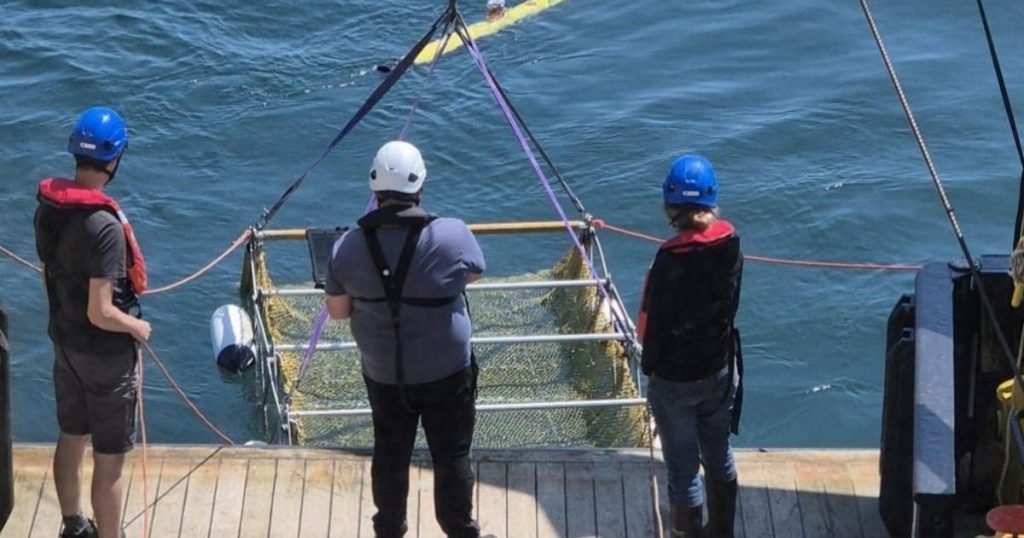Unveiling Britain’s Lost Atlantis: Archaeological Dredging in the North Sea Sheds Light on Stone Age Life
The depths of the North Sea hold a treasure trove of information about Britain’s Stone Age past. A collaborative team of archaeologists, marine researchers, and wind farm developers are undertaking a groundbreaking project to dredge the seafloor and unearth artifacts from Doggerland, a submerged landmass that once connected Britain to continental Europe. This area, often referred to as Britain’s lost Atlantis, was inundated by rising sea levels approximately 7,000 years ago, obscuring the lives and culture of the Stone Age inhabitants. Now, thanks to this ambitious project, hundreds of artifacts are being recovered, offering unprecedented insights into how these ancient Britons lived, worked, and ultimately met their fate.
The project, spearheaded by Professor Vince Gaffney of the University of Bradford, involves collaboration with the Flemish Marine Institute in Belgium, North Sea wind farm projects, and Historic England’s Marine Planning Department. This multi-faceted approach leverages the resources and expertise of diverse stakeholders, highlighting the potential of interdisciplinary collaboration in archaeological research. By working with wind farm developers, the project not only advances our understanding of the past but also contributes to a sustainable future, aligning archaeological endeavors with renewable energy initiatives.
The dredging efforts have yielded a remarkable array of artifacts, including flint cutting tools and flakes, offering tangible evidence of Stone Age life in Doggerland. These discoveries challenge the previous notion that the rising sea levels completely erased the traces of these ancient communities. Instead, the seabed has become a time capsule, preserving the remnants of a lost world. The artifacts recovered provide invaluable information about the daily lives of Doggerland’s inhabitants, their toolmaking skills, and their interactions with the surrounding environment.
The research team hopes that continued exploration of the seafloor will provide further insights into the societal structures, beliefs, and eventual demise of the Doggerland population. The project’s implications extend beyond simply understanding the past. By studying the impact of past sea-level rise on human populations, researchers can gain valuable perspectives on the potential consequences of future climate change and inform strategies for mitigating its impact on coastal communities. The Doggerland project serves as a powerful reminder of the dynamic nature of our planet and the importance of understanding past environmental changes to prepare for future challenges.
The submergence of Doggerland was a catastrophic event, likely triggered by a series of tsunamis approximately 8,200 years ago, as revealed by research conducted in 2020. This cataclysmic event would have resulted in widespread devastation and loss of life, dramatically reshaping the landscape and displacing or eradicating entire communities. The scale of the disaster underscores the vulnerability of human populations to natural events and the enduring power of nature to reshape our world. The Doggerland story serves as a sobering reminder of the fragility of human existence in the face of powerful environmental forces.
The North Sea project, with its focus on Doggerland, represents a significant leap forward in our understanding of Britain’s Stone Age history. By retrieving artifacts from the seafloor, researchers are piecing together the story of a lost world and gaining invaluable insights into the lives of the people who once inhabited this now-submerged landscape. The ongoing collaboration between archaeologists, marine researchers, and wind farm developers demonstrates the potential for synergistic partnerships to advance scientific knowledge while simultaneously contributing to a sustainable future. The project’s findings also carry profound implications for understanding the potential impact of future climate change and the importance of preparing for its consequences. The study of Doggerland serves as a stark reminder of the power of nature to reshape our world and the need to learn from the past to navigate the challenges of the future.




